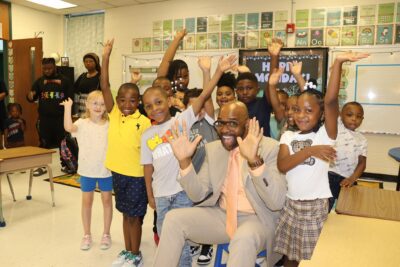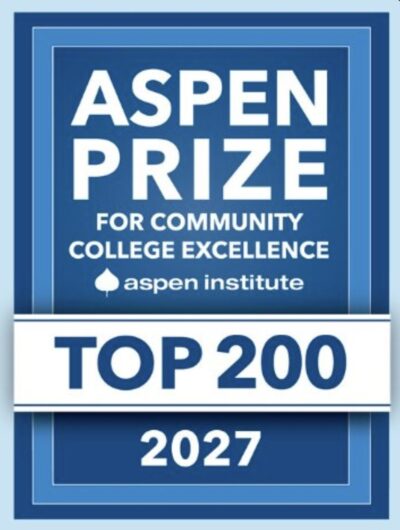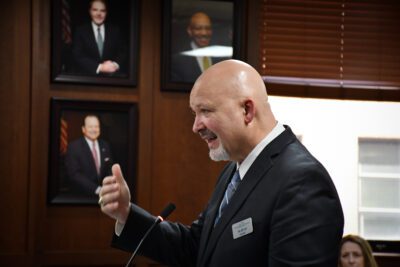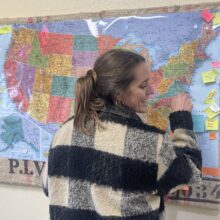This article is part of EdNC’s fall 2025 “mini-blitz” to visit community colleges with presidents who began their tenure in the last two years. You can read all our coverage of community colleges here and all of our coverage of community college presidents here.
Dr. Tabitha Miller went to 13 different K-12 schools growing up. Her father was a traveling evangelist, preaching at tent revivals across the Midwest. Her mother told stories of watching tornados form on the Great Plains while they were staying in Kansas. They lived a long stretch in Texas, and then the family made its way back to southern Ohio where Miller was born.
In her senior yearbook, she wrote that one day she would live in North Carolina. Her father worked in the business of hope, so it wasn’t unusual that Miller would allow herself to make such a declaration having never been to the state.
In the end, her premonition was right. It was a long winding road in her education career, but Miller became the 10th president at Martin Community College (MCC) in Williamston, North Carolina in 2024.
From the Midwest to Martin Community College
Miller went to The Ohio State University and got her bachelor’s in education, focusing on physical education. She lived in Springfield, Ohio and became an English teacher and coach.
“I was trained by some phenomenal people on the methods for coaching people,” said Miller. She credits the combination of her upbringing and education for the ways in which she leads.
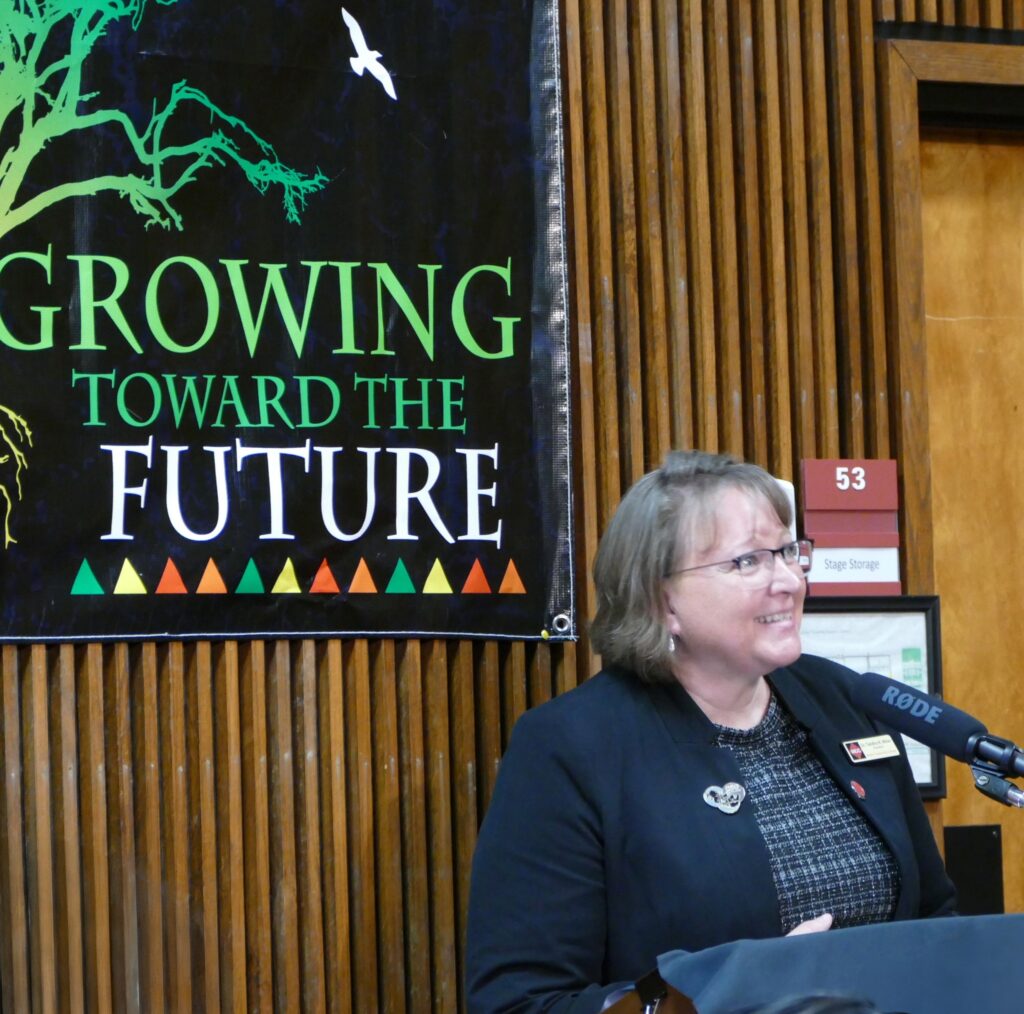
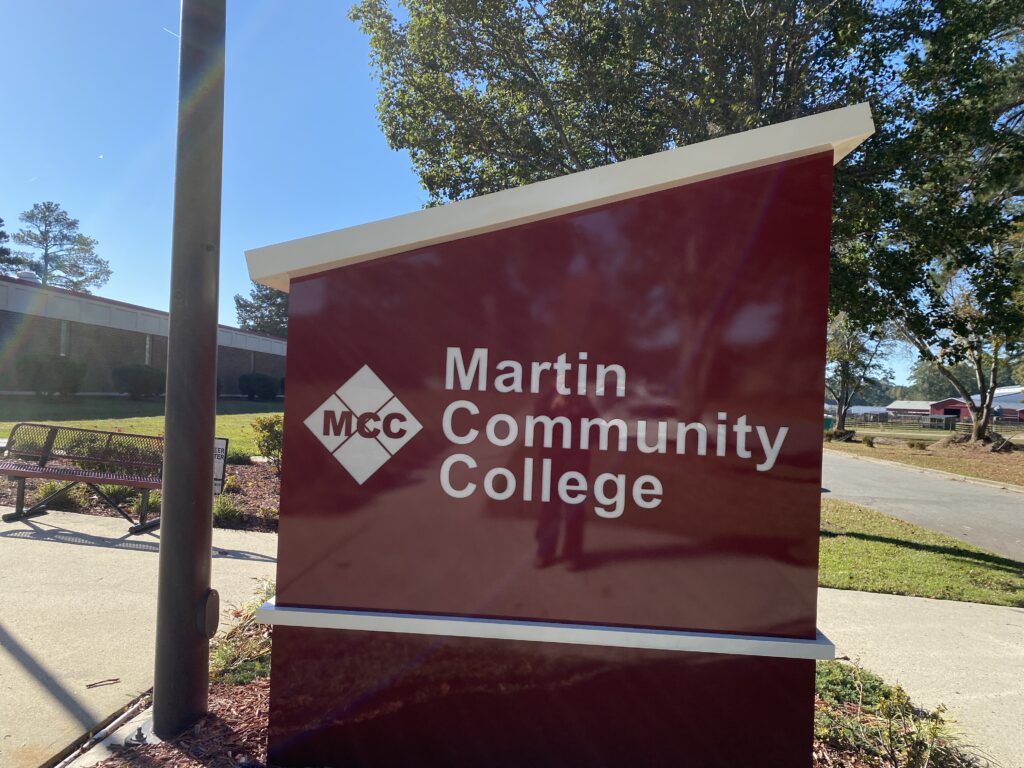
“Being in a preaching family … your whole life is (working in) inspiration and encouragement to others and trying to help others,” she said. “And then falling into this practice of education where that’s their whole goal: to uplift and inspire and get people motivated to do things.”
It makes sense that she found her way to the community college system.
It’s not just about me moving forward. It’s about bringing other people with me forward and helping them become who they want to be. That’s a big, essential piece of who I am.
— Dr. Tabitha Miller, president at Martin Community College
The military moved her from Ohio to North Carolina after Sept. 11. Her partner at the time had just enlisted in the Marine Corps, and they made their way to Jacksonville.
After arriving, she remembers driving past a sign for Coastal Carolina Community College (CCCC). Up until that point, she wasn’t familiar with the community college system. She walked in and asked, “What does it take to work here?”
Read more
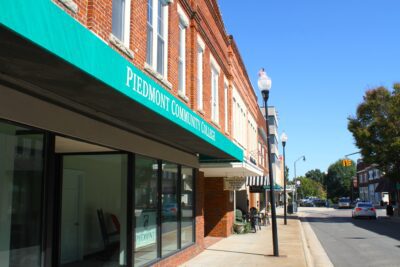
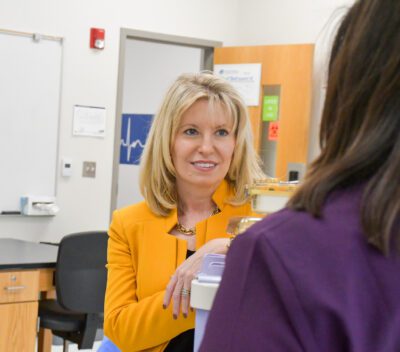
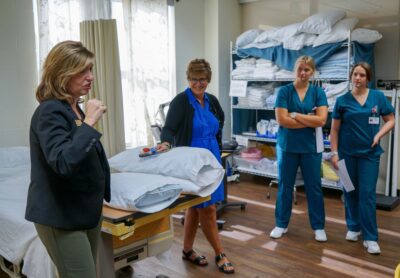
A day later, the school had her resume and hired her on the spot to teach developmental English. She went on to receive her master’s and Ph.D. in English from East Carolina University while working as a part-time instructor at CCCC. She then moved to Pitt Community College for 11 years, where she worked in various roles.
Miller began preparing herself for a presidency path in 2010. Looking back, she believes her experience teaching, working in student development services, and working in academic affairs has helped her see a fuller picture of how a community college functions. She moved to MCC in July 2019 and took the role of vice president and chief academic officer.
Before she became president, she helped establish Martin Innovative Early College. Miller also supported the development of a long list of new or expanded programs for MCC that includes cosmetology, nursing, mechatronics, agriculture education, and more.
Her love of the community college system began shortly after she saw that sign for CCCC. After her first day of teaching, she went to the dean and said, “How do I stay here? I never want to leave the community college system,” she recalls.
The mares and more of Martin
In 1998, the Senator Bob Martin Eastern Agricultural Center, with a state-of-the-art equestrian facility, was built in Martin County. MCC took advantage of this economic engine and created an equine program that students from across the state and nation travel to attend. The school has a 600-seat equine arena, two barns, outdoor riding ring, multiple paddocks, classrooms, and 50 horses.
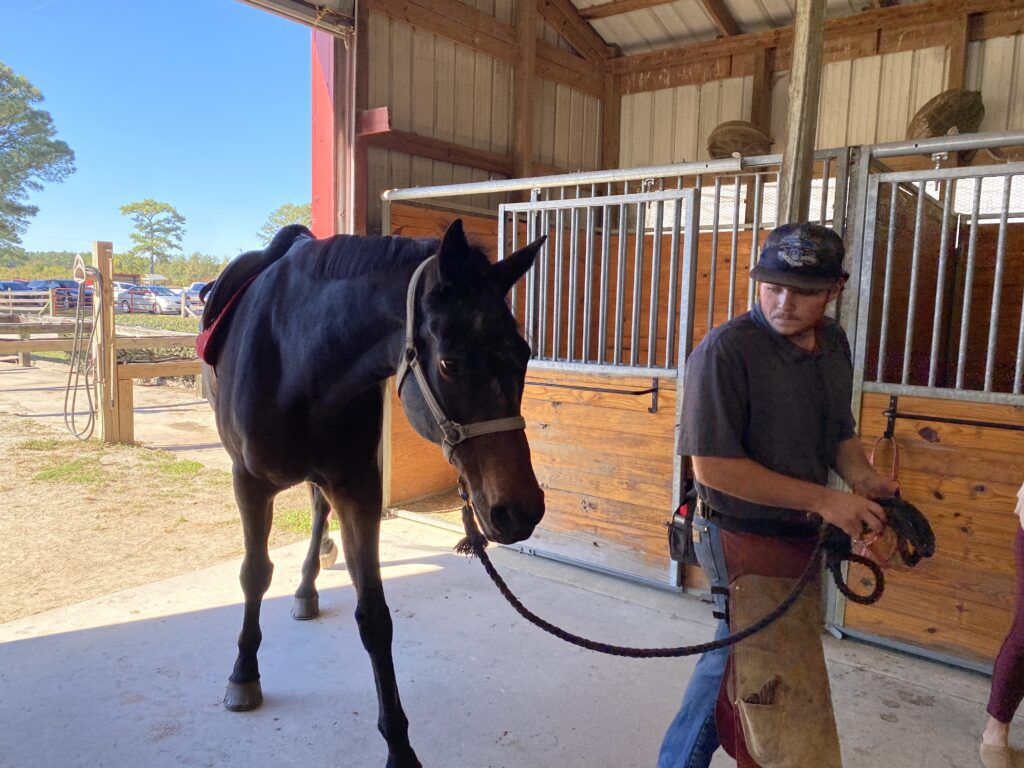
Mary Dalcourt is a graduate of MCC and the current barn manager. She believes horse training is a big draw for most of her students. She has been doing this for 16 years, and said while some students don’t know what their focus will be in their degree, they come because they love horses.
![]() Sign up for Awake58, our newsletter on all things community college.
Sign up for Awake58, our newsletter on all things community college.
MCC is the only community college in North Carolina that offers degrees in equine business and equine training, according to the N.C. Community Colleges System. “They are allowed to dip their toes in a lot of different aspects of the industry,” Dalcourt said.
All horses are donated, a fact that Dalcourt is really proud of. She and her students learn with horses who sometimes haven’t had as a good a life elsewhere. At MCC, they are loved, cared for, ridden, and trained.
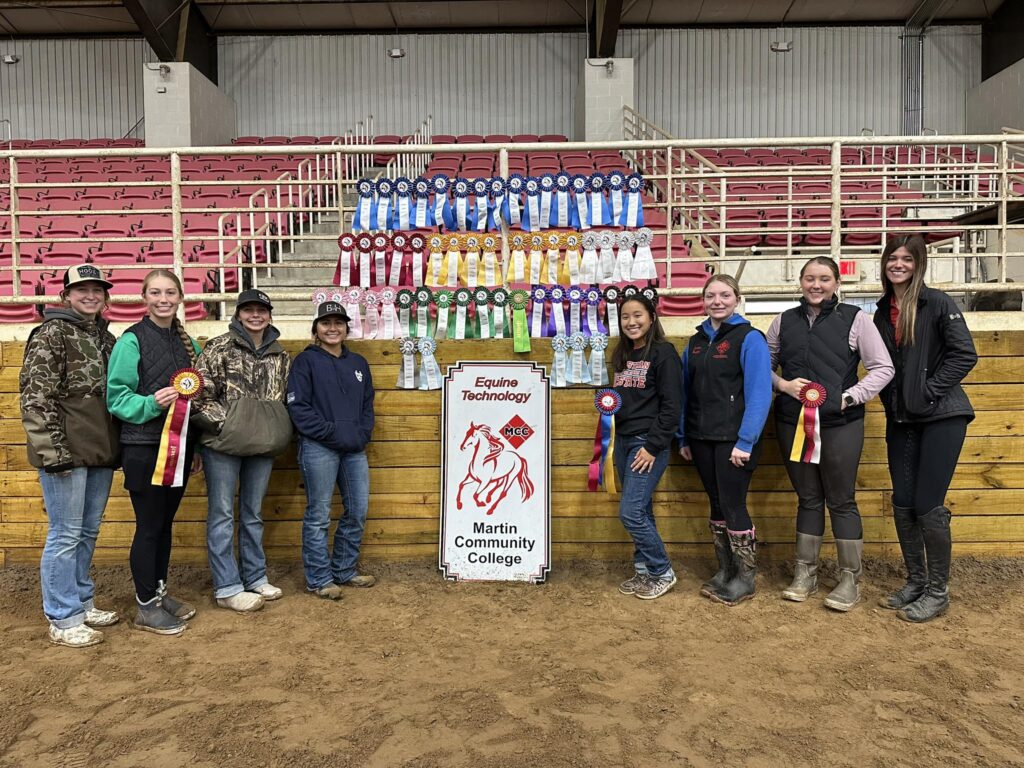
The college hosts events for the public at their equine arena and also uses it for classes. Students show horses for the community, and they host the statewide N.C. 4-H and FFA judging competition. High school students from across the state come to the facility, and Dalcourt says she’s recruited some of the program’s students that way.
Making MCC a not-so ‘hidden gem’
Miller has worked on strengthening relationships with the school districts in the college’s service area — Bertie County Schools and Martin County Schools — in her tenure at MCC. The college hosts students who may be interested in career pathways. Students visit to see what classes would look like, and in some cases, to see what work in the actual field would be.
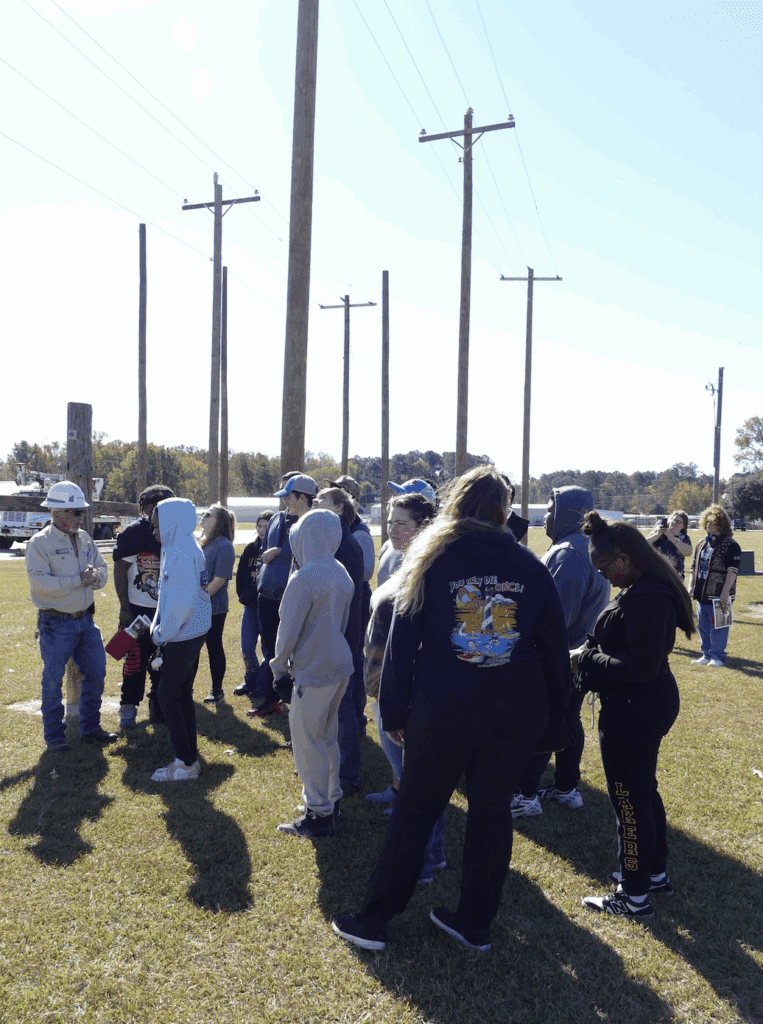
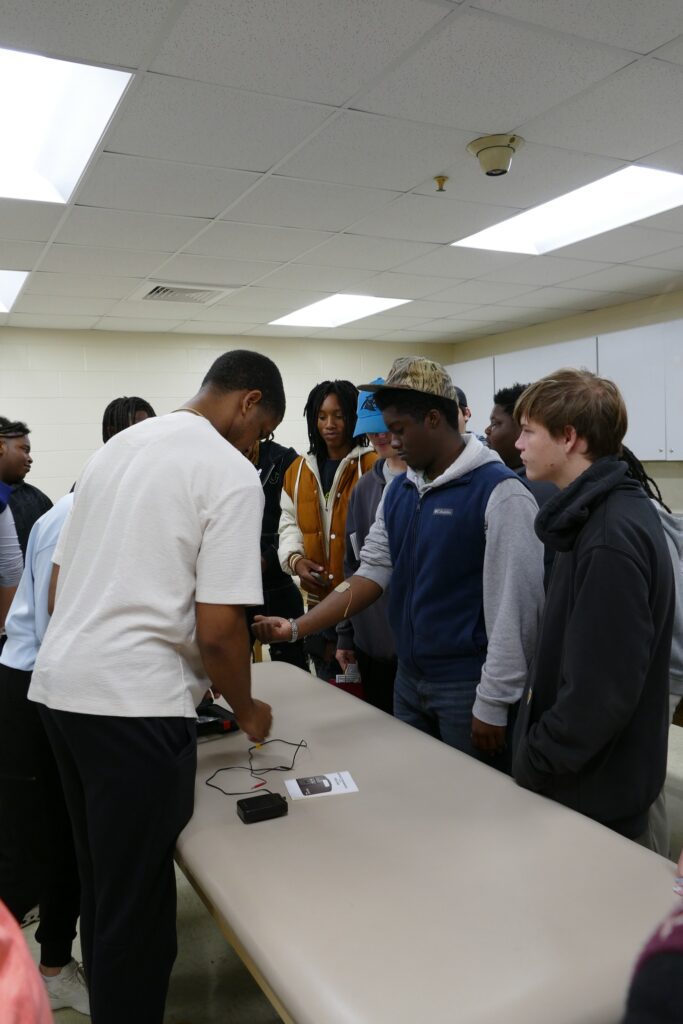
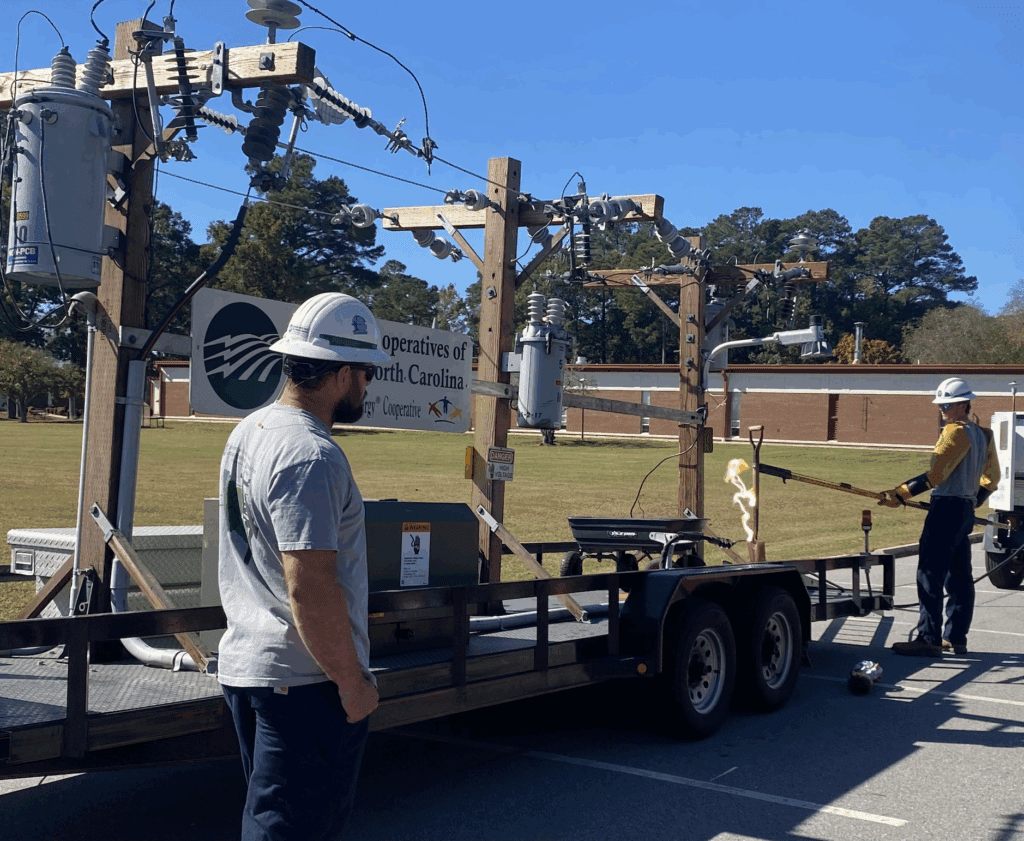
Miller is also looking at a regional approach to lifting up her community college. She and Roanoke-Chowan Community College President Dr. Murray J. Williams are working together to invest in their regions. Both areas have been effected by industry loss, and Miller believes their focus is the same.
“The ultimate goal is to build these communities back up, to have educated folks in whatever skilled trade or knowledge it is that they need or want, to be able to have a family-sustaining wage, and to help move these counties forward,” she said.
Funding remains a challenge for this small, rural college. Miller said there is a need to upgrade or replace equipment, or build more facilities to accommodate growing academic offerings. She again credits her experience with multiple jobs in the community college system in understanding budget constraints.
When applying for grants, Miller knows philanthropists and organizations look to see where money can make the biggest impact with a large amount of students. Out of North Carolina’s 100 counties, Bertie ranks 85th by population, and Martin ranks 78th.
According to Miller, fall enrollment at MCC surpassed 1,000 curriculum students, and Full-Time Equivalent (FTE) student enrollment increased by 13%.
Miller and Happy Gringas, the school’s vice president of academic affairs and chief academic officer, believe MCC is a “hidden gem.” Their goal is to continue to show up for students and make them feel welcome in the space. The pair wants to tell their story to a wider audience by letting the community know their offerings and being reactive to what the region needs.
Gringas said they are trying to remove the idea of limitations and are asking themselves, “What if? Why not? How could we?” — all for the betterment of Martin Community College, their region, and the people that call it home.
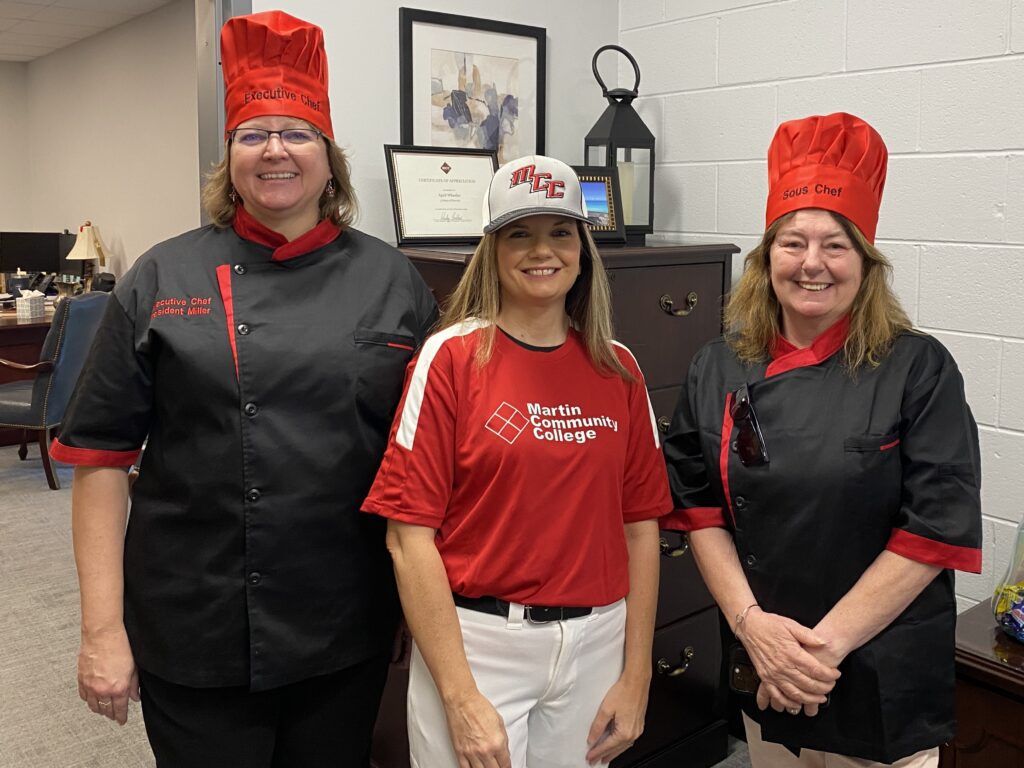
Recommended reading
